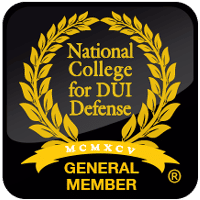Menu
Wyoming Search and Seizure Laws: What You Need to Know
April 6th, 2021

“The right of the people to be secure in their persons, houses, papers, and effects, against unreasonable searches and seizures, shall not be violated, and no Warrants shall issue, but upon probable cause, supported by Oath or affirmation, and particularly describing the place to be searched, or the things to be seized.”
The Fourth Amendment protects a person against illegal searches and seizures, requiring that any search or seizure by a police officer or government agent be supported by probable cause.
For purposes of the Fourth Amendment, a search occurs when the government violates a person’s reasonable expectation of privacy. A seizure occurs when a reasonable person would not believe he is free to ignore the police and leave at will.
To determine whether a search or seizure is lawful, courts will consider whether the person claiming their Fourth Amendment rights were violated had a “reasonable expectation of privacy” in the place or thing being searched.
If a court finds that a search or seizure violated the Fourth Amendment, the judge can order that evidence obtained as a result of an illegal search or seizure be excluded from consideration at trial.
The Fourth Amendment is frequently cited by criminal defense attorneys in Motions to Suppress evidence where a criminal defense lawyer asks the court to exclude evidence that was illegally obtained.
What If Your Fourth Amendment Rights Were Violated?
Mapp v. Ohio: The Exclusionary Rule
In the 1964 case of Mapp v. Ohio, the United States Supreme Court Case established the exclusionary rule, which is intended to deter illegal police conduct by allowing the court to exclude evidence that was obtained illegally.
If a defendant believes his constitutional rights were violated by an illegal search or seizure, the defendant and his attorney can file a Motion to Suppress Evidence asking that the court exclude evidence that was illegally obtained. If the defendant is successful, the court will prohibit the illegally obtained evidence from being considered by the judge or jury in the criminal trial.
Fruit of the Poisonous Tree
The “fruit of the poisonous tree” doctrine is similar to the exclusionary rule. In addition to excluding evidence that obtained illegally, the court can also exclude evidence that was derived from an illegal search or seizure.
Suppose police illegally search your home and discover evidence of illegal explosives. They then use the evidence of explosives to obtain a warrant to search your home. But because the initial search was illegal, any evidence obtained because of the illegal search must also be excluded. Thus, the “tree” is the original illegal search, while the fruit is any evidence that was obtained as a result of the original illegal search.
Are There Exceptions to the Exclusionary Rule?
While police and other law enforcement agents are generally prohibited from conducting searches without a warrant or probable cause, there are exceptions. Law enforcement can still conduct a search if they have consent. They can also conduct a search incident to an arrest, if they have probable cause to believe a crime is being committed, or if there are exigent circumstances. Law enforcement can also conduct a search if evidence of illegal activity is in plain view.
If My Lawyer Has Evidence Excluded, Is My Case Dismissed?
Many people mistakenly believe that if their lawyer successfully has evidence excluded from consideration by the jury, their case will be dismissed. This is not quite accurate. Even though the evidence will be excluded, the prosecutor can still move forward with the case. However, without the illegally obtained evidence, the prosecutor may have a more difficult time securing a conviction and may be more willing to agree to a favorable plea bargain. Other times, the case against you will be completely dismissed.
The Legal Team of Christina L. Williams: Protecting YOUR One Shot at Justice
If you have been charged with a crime, it is essential that you work with an experienced criminal defense attorney. At Just Criminal Law, Christina L. Williams and her team of criminal defense professionals will review your case, thoroughly analyze the evidence against you, and represent you in court.
Learn more about the cases we handle, meet criminal defense attorney Christina L. Williams and her team of criminal defense professionals, and get answers to Frequently Asked Questions. Then contact us today to schedule your personalized case review and strategy session.
DISCLAIMER: The information contained in this article is offered for educational purposes only. This information is not offered as legal advice. A person accused of a crime should always consult with an attorney before making decisions that have legal consequences.
Categories: Criminal Charges - General Questions





